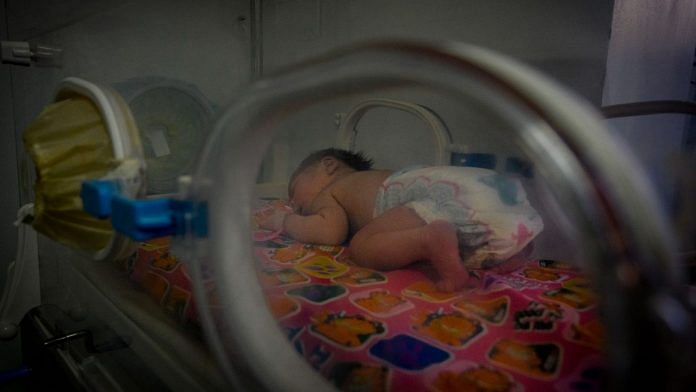New Delhi: In a first for the country, the Tamil Nadu government has banned sex reassignment surgeries on infants and children. While activists have hailed the government’s progressive order, they also rue the fact that intersex persons are minorities even within the LGBTQ community and face discrimination of the “worst order”.
In its directive, passed earlier this month, the state government has also said that intersex surgeries will only be allowed in cases of life threatening situations, which will be decided after the recommendations of a committee formed by the Directorate of Medical Education (DME). This panel shall comprise of a pediatric surgeon or urologist, an endocrinologist, a social worker or intersex activist and a government representative.
Talking to ThePrint, intersex activist Gopi Shankar said the order is even bigger than the Supreme Court’s verdict on decriminalising homosexuality which was passed last year.
But the activist was disappointed that no LGBTQ group has come out to celebrate the progressive order. “What do you expect? The newborns to come out and rejoice? We are minorities even in a minority community. LGBTQ discriminates us more than the rest of the society,” he said.
The latest development has come months after the Madras High Court’s ruling, in a judgement on 22 April, to enforce the ban within eight weeks. The court had earlier questioned the validity of “forced and non-necessary medical surgeries on intersex infants”.
It had also recalled the 2014 Supreme Court National Legal Services Authority (NALSA) vs Union of India judgment which recognised the rights of transgenders.
Intersex, a misunderstood nomenclature
Intersex is often misunderstood for the term transgender. Transgenders have a gender identity that is different from their assigned sex while intersex is a term used for persons who are born with variations in reproductive anatomy that doesn’t fit the typical definitions of being a female or a male.
“In a country where female infanticide is prevalent, one cannot say that there is no intentional killing of intersex infants. Children who undergo sex selective surgeries tend to kill themselves when they feel they are trapped in wrong bodies,” Shankar said.
“Even medical procedures on animals have protocols but there is no such thing for intersex infants,” he added.
Also read: ‘Even the definition is off the mark’ — why transgenders are upset with Modi govt bill
Lack of specialists
An official of the DME, who did not wish to be named, said, “The state lacks special skills required for such complex surgeries. Not all physicians and urologists are trained adequately for intersex operations. There have been complications in most cases. The government’s order should also be an opportunity to involve ourselves in more research and training.”
There are around 46 classifications under which intersex is diagnosed and they are often problematic.
“Hypospadias is a classic example which is usually diagnosed as intersex. But there is just a 10 per cent chance of this condition being defined as intersex. Various researchers have also concluded that there is no proven benefit in cosmetic corrections. It may in fact worsen things,” added the DME official.
The official also said that other states should follow in Tamil Nadu’s footsteps to ban intersex surgeries on infants.
In Tamil Nadu, sex selective surgeries are covered under medical insurance schemes. In the last three years, more than 300 intersex surgeries have been recorded at government hospitals in the state.
Talking about the implementation of the government order, Shankar said, “This is a baby step and there is a lot to be done. People (especially parents, medical practitioners and lawmakers) need to be sensitised about it. Clear guidelines should come and more amendments can be added to the ruling in due course of time.”
Also read: In breaking transgender stereotypes in Delhi govt schools, this NGO junked its own



